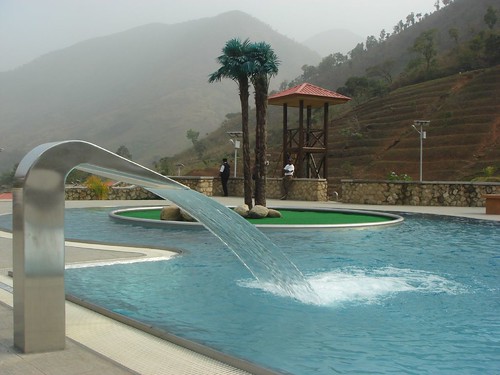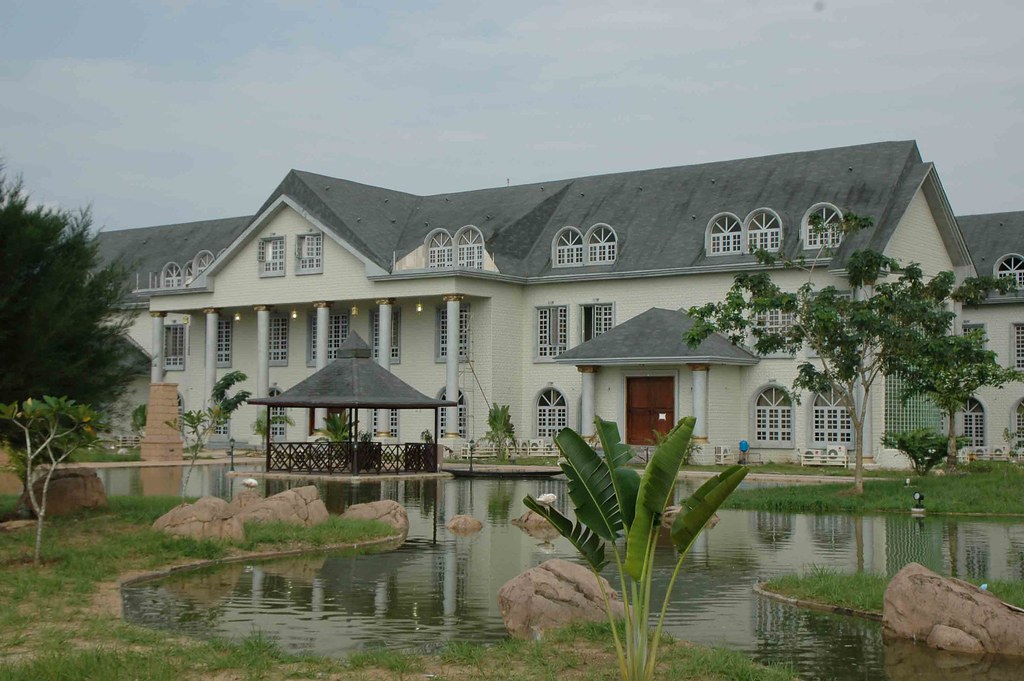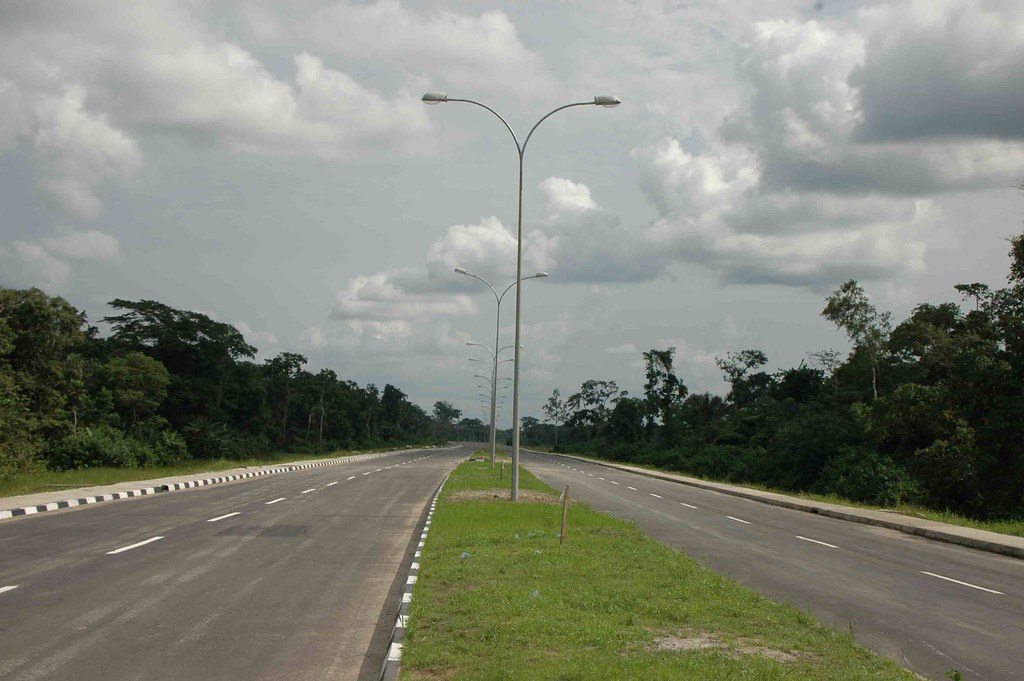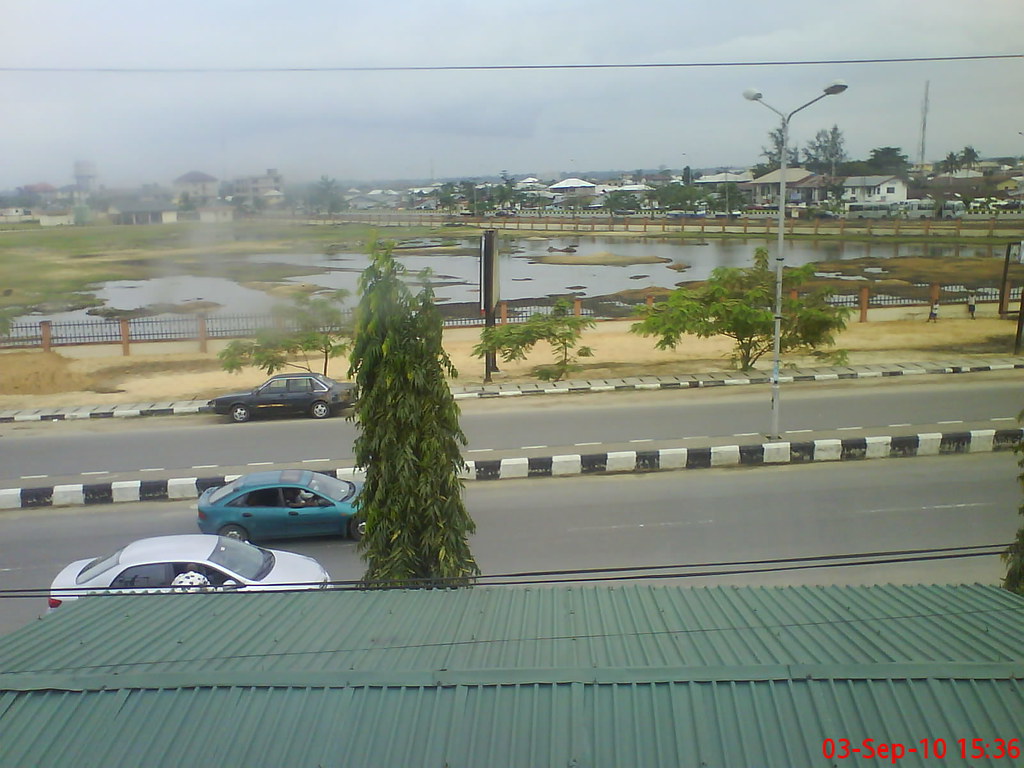Financial Times Lagos Report - At Last, Some Balanced Coverage Of Nigeria - Politics - Nairaland
Nairaland Forum / Nairaland / General / Politics / Financial Times Lagos Report - At Last, Some Balanced Coverage Of Nigeria (2865 Views)
Financial Times calls Nigeria's economic approach the height of foolishness / Buhari PR Article On Financial Times Paid For By Delta And Cross River State Gov / Financial Times Newspaper Hails Tinubu As The Godfather Behind GEJ's Defeat(Pic) (2) (3) (4)
| Financial Times Lagos Report - At Last, Some Balanced Coverage Of Nigeria by Rossikk(m): 4:33pm On Jul 11, 2012 |
Financial Times Lagos Report - At Last, Some Balanced Coverage Of Nigeria Africa: Lessons from Lagos By Xan Rice The reinvention of Nigeria’s commercial capital is offering a model for how African megacities can cope with soaring populations Read more: http://www.ft.com/cms/s/0/8b24d40a-c064-11e1-982d-00144feabdc0.html#axzz20KK5vhKX |
| Re: Financial Times Lagos Report - At Last, Some Balanced Coverage Of Nigeria by Rossikk(m): 4:40pm On Jul 11, 2012 |
Full Text: [size=14pt]Africa: Lessons from Lagos[/size] By Xan Rice The reinvention of Nigeria’s commercial capital is offering a model for how African megacities can cope with soaring populations --------------------------[img]http://im.media.ft.com/content/images/b495b9f2-b197-43a3-9582-338bdc72f83c.img[/img] No one knows how big Lagos is. “It keeps swallowing smaller cities so we can’t define the boundaries,” says Ayo Adediran, director of the city’s regional and master plan department. No one knows the population of Nigeria’s commercial capital either. The UN’s most recent estimate, for 2011, was 11.2m. If that is correct, then it is closer to 11.4m by now, meaning Lagos has passed Cairo to become Africa’s biggest city. What is known is Lagos’s old reputation and that is not good. “Housing congestion, traffic congestion,” says Mr Adediran, reeling off a list in his office. “Broken social and physical infrastructure. Slums. Mountains of refuse blocking the roads. Bad security.” He pauses, before adding: “But things have changed.” Mr Adediran is right. While the “go-slow” traffic jams do still occur, the drive from the financial district on Victoria Island to the Lagos State government offices in Ikeja takes 30 minutes, rather than 90 minutes as it may have done a few years ago. On the long bridge across the Lagos Lagoon, where thousands of shacks are perched on stilts in the water, women in bright yellow overalls with “Highway Managers” printed on the back sweep away the rubbish. Labourers fill in a pothole and replace a set of traffic lights; their “Men at Work” sign includes a sticker saying “Pay your taxes”. A bus speeds by in a dedicated lane, part of the continent’s first bus rapid transport system. Giant concrete pillars signal the progress of a rail system that will soon start ferrying commuters. This is all part of an ambitious, long-term plan by the Lagos state government to transform one of the continent’s most dysfunctional urban centres into “Africa’s model megacity”. Given that it generates around a quarter of Nigeria’s gross domestic product, the rebirth of Lagos is crucial to the future of Nigeria, which hosts one in six people in sub-Saharan Africa. The country also has the region’s second-biggest economy and is its largest oil producer. Lagos’s progress is also an important case study for other large cities on the continent. Its rapid growth – the population has risen eightfold from 1.4m in 1970 – and accompanying challenges are not unique. Across Africa, the urban population has grown from 23.5 per cent of the total population in 1970 to nearly 40 per cent today. Though the pace of migration to cities is slowing, high fertility rates mean that African cities have been expanding quicker than in most other parts of the world in recent years, and will continue to do so. Between 2010 and 2020, Lagos and Kinshasa, the capital of Democratic Republic of Congo, will add 3.6m and 4m people to their respective populations. Many of the 38 other cities in sub-Saharan Africa with more than one million residents are growing even faster, at rates that “defy belief”, according to UN-Habitat. These include Nairobi, Luanda, Kampala, Abuja and Ouagadougou, which will each see their populations grow by between 47 and 81 per cent in the decade to 2020. Strong economic growth across sub-Saharan Africa, expected to average 5.4 per cent this year, has made it one of the most attractive frontier markets. Yet the UN warns that governments’ failure to properly plan for increased residents means risking “serious economic and social tension that may threaten local and national political stability”. “It’s a crucial time for the continent because there is no sustainable development without sustainable urbanisation,” says Alioune Badiane, director of the Regional Office for Africa and the Arab States at UN-Habitat. “What is really needed is good governance.” That is not a concept normally associated with Nigeria, either at national level or in the 36 states, which operate under a federal system. Under former Lagos state governor Bola Tinubu, and especially under his successor Babatunde Fashola, a no-nonsense 49-year-old lawyer, things have started to turn round. Mr Fashola, a popular figure in a country where few politicians are admired, says he views the city’s huge population positively. “It’s a big asset, bigger than the challenge the people represent by their sheer number. People are the biggest and most dependable resource.” Aware that success in turning Lagos around will attract more migrants, he is planning for a city of 40m. Cleanliness is a priority. Mr Fashola’s slogan is “Eko o ni baje”, which means “Lagos will not be spoiled” in Yoruba. On the streets it seems less an aspiration than an order. A sign beside a waste management facility reads “Embrace Cleanliness”. Another says: “Don’t mess with Lagos – pasting of posters is illegal”. On a pillar beside a highway is stencilled: “No loitering, no hawking, no waiting, keep moving, don’t urinate here.” Underpasses and roundabouts have been cleared of informal traders and planted with grass and flowers. Some of the “area boys” – local toughs who preyed on pedestrians and motorists alike – have been hired to do the beautification work. Petty crime has reduced, residents say, while armed robberies of banks, shops and hotels, which were common only a few years ago, have declined due to more effective policing. The effect is not merely cosmetic. Once a city to be avoided, Lagos is now seeing a new wave of foreign companies moving in, including Shoprite, a South African supermarket chain that now has three shops anchoring upmarket malls. At the same time Lagos state revenues have soared. In 1999, tax receipts amounted at 600m ($3.7m) naira a month, Mr Fashola says. In 2007, when Mr Fashola was first elected, they had reached 7bn naira. In a controversial move, a company linked to his predecessor, Mr Tinubu, was awarded a contract to collate and record the tax revenues. The company’s deal was sweet; it earned 10 per cent of any income above 7bn naira. But Mr Fashola said it has offered value; today monthly revenues are more than 15bn naira. Nearly 75 per cent of Lagos’s revenues are now internally generated and other states are following its model. “We have doubled our income in four years, without increasing taxes,” says Mr Fashola. “It’s just persuasion and expanding the net.” The improved finances have enabled Lagos state to raise its own capital through bond sales. Unlike at national level, where more than 70 per cent of the budget goes to recurrent expenditure, 60 per cent of Lagos’s budget is now allocated to capital projects, Mr Fashola says. Much of the spending has focused on transport infrastructure. In 2008, the bus rapid transport system was launched under a private-public partnership. The state built the depots, terminals and lanes. Private operators provided the buses. Every day 200,000 people use the the system, cutting journey and waiting times by 30 per cent compared with unregulated public transport, says Dayo Mobereola, managing director of Lagos Metropolitan Area Transport Authority. The multibillion light-rail project, which may eventually include seven lines, is even more ambitious. The China Civil Engineering Construction Company is building the terminals and tracks, which run on elevated rails above the traffic in some areas. A private consortium, Eko Rail, will supply the trains and operate the network for 25 years. It is hoped the network will carry many hundreds of thousands of passengers a day. “We are trying to build capacity that can cope with the demands in 10 or 15 years’ time,” Mr Mobereola says. Developers are looking ahead, too. On the Victoria Island seafront, a new city within a city is being built on land reclaimed from the ocean. Every day giant dredgers add 80,000 cubic metres of sand to the privately-funded Eko Atlantic site, which will eventually comprise 9m square metres of land. With its own water and power supply, 60-metre wide boulevards and accommodation for 250,000, it is firmly aimed at the elite in a city where inequality is extreme. While multimillionaires moor their yachts in the creeks of Lagos, nearly two-third of Lagosians still live in slum conditions. Some critics say that the early efforts to transform the city have concentrated too much on the better-off people and areas. Robert Neuwirth, an American writer who spent several months in Lagos in 2007 researching a book on the informal sector, and recently visited the city again, says Mr Fashola’s crackdown on unregulated markets and hawkers had damaged the street economy, which up to three-quarters of residents rely on for a living. Kingsley Omose, a lawyer working with a community group in the poor neighbourhood of Orile-Iganmu, says that while wealthier areas have received more attention in terms of the facelift, slums have also improved. “When I first came here in 2007, this road was more like a footpath and you could not get through when it rained,” he says. Just a few miles from the city centre, the slum is home to several hundred thousand people. In rundown apartments, as many as 10 live in a single room with no bathroom or kitchen. As everywhere, the power supply is “epileptic”, as Nigerians like to describe it. So is the water supply. No proper sewage system exists. But Lagosians are also demanding to be heard because of the taxes they pay. After several requests Mr Fashola’s government paved several of the roads through the slum. As a result of the improved access, numerous new business have opened, and small shops are packed with food and other basic goods. New apartment blocks have sprung up, along with a four-storey private clinic. From Orile-Iganmu you can see the new railway. “This place is not still much to write home about,” says Olabode Medale, president of a community group. “But to be frank, things are getting better.” Even Diyaolu Olubunmi, the 78-year-old chairman of the local authority, who grumbles the pace of change is far too slow, admits that some things have improved, such as security. “Here you can now sleep with two eyes closed,” he says. Fixing Lagos is, of course, a long-term project. William Cobbett, the manager of Cities Alliance, a global partnership of governments and development organisations that seeks to reduce urban poverty, says it will take two to three decades of progress to turn the city around. Despite the huge challenge, the advances already made mean Lagos could one day be seen as a role model for other sub-Saharan African cities, Mr Cobbett says. “Lagos used to be the poster child for urban mismanagement,” he says. “But now it has had 12 years of constant reform, transcending election cycles, and that offers prospects for real transformation.” |
| Re: Financial Times Lagos Report - At Last, Some Balanced Coverage Of Nigeria by Rossikk(m): 4:56pm On Jul 11, 2012 |
In the next couple of decades, we could have statues of Fashola, Tinubu, and perhaps a couple of other future dynamic governors, dotting the landscape of the city centre as the HEROES who transformed the city into a showpiece of African competence. |
| Re: Financial Times Lagos Report - At Last, Some Balanced Coverage Of Nigeria by babapupa: 4:56pm On Jul 11, 2012 |
Nothing is impossible with hard work and great leadership. A lesson for the rest if Nigeria. Kudos to Fashola and the people of Lagos State. |
| Re: Financial Times Lagos Report - At Last, Some Balanced Coverage Of Nigeria by Rossikk(m): 3:36pm On Jul 12, 2012 |
Indeed. |
| Re: Financial Times Lagos Report - At Last, Some Balanced Coverage Of Nigeria by Bawss1(m): 3:45pm On Jul 12, 2012 |
They just had to use this old picture of Oshodi.  [img]http://im.media.ft.com/content/images/b495b9f2-b197-43a3-9582-338bdc72f83c.img[/img] |
| Re: Financial Times Lagos Report - At Last, Some Balanced Coverage Of Nigeria by Mrchippychappy(m): 4:38pm On Jul 12, 2012 |
Rossikk: Financial Times Lagos Report - At Last, Some Balanced Coverage Of LAGOS, NigeriaTHIS ARTICLE IS ABOUT LAGOS NOT ABOUT NIGERIA . LAGOS IS NOT NIGERIA , ITS A STATE INSIDE NIGERIA . MR ROSSIK PLEASE LEARN TO REASON PROPERLY AND SPOT THE DIFFERENCE IN ARTICLES. LAGOS IS A GREAT ECONOMICALLY VIABLE AND THRIVING STATE INSIDE NIGERIA THAT IS UNFORTUNATELY A FAILED STATE . YES NIGERIA DESERVED TO BE LISTED AS NUMBER 14TH IN THE LIST OF FAILED STATES AND I STILL BELIEVE THEY DID US A FAVOUR , NIGERIA SHOULD HAVE BEEN LISTED AS NUMBER 4 OR 5 , NUMBER 14 IS TOO GOOD FOR THIS FAILED STATE CALLED NIGERIA. NOW, MR ROSSIK YOU CAN ATTACK ME ALL YOU WANT BUT THAT WOULDN'T CHANGE THE FACT THAT I STILL CONSIDER YOUR REASONING CAPACITY AS ONE THAT CAN ONLY BE COMPARED TO A RET.ARDED CHIMPANZEE https://www.nairaland.com/978918/nigeria-ranked-14th-failed-state/2#11309736 1 Like |
| Re: Financial Times Lagos Report - At Last, Some Balanced Coverage Of Nigeria by Rossikk(m): 6:10pm On Jul 12, 2012 |
Bawss1: They just had to use this old picture of Oshodi. Well, all na Lagos.  |
| Re: Financial Times Lagos Report - At Last, Some Balanced Coverage Of Nigeria by Rossikk(m): 6:24pm On Jul 12, 2012 |
Meanwhile it's obvious some people are soooooo PAINED and FURIOUS to see this good news about Nigeria. In fact it is paining them sooooo much that they feel like shiitting their pants. Anyone wanna offer them wipes? Meanwhile, sit back for more Good and Positive News about Nigeria on this thread.... Let's give the Nigeria haters even more AGONY.   |
| Re: Financial Times Lagos Report - At Last, Some Balanced Coverage Of Nigeria by solomon111(m): 7:51pm On Jul 12, 2012 |
Mr.chippychappy:Akwa-ibom state is far more organised structurally and functionally,and with better infrastructures. Lagos state is not the only 'progressive' state in Nigeria. |
| Re: Financial Times Lagos Report - At Last, Some Balanced Coverage Of Nigeria by Biggyd2: 7:55pm On Jul 12, 2012 |
. |
| Re: Financial Times Lagos Report - At Last, Some Balanced Coverage Of Nigeria by Nobody: 9:54pm On Jul 12, 2012 |
^^Very True Uyo: City that dazzles at night by ETIM EKPIMAH A few years ago, Uyo, the capital of Akwa Ibom State, was a dusty little city full of bad roads, perpetual power outage, and a drab night life. But a deliberate plan of action has led to the transformation of the city in the last four years. A well-conceived infrastructural development programme has resulted. Consequently, the construction of new roads and bridges has now opened up Oyo to the rest of the world in such a way that has never been seen before. A resident of the city, Mr. Uche Offor, describes the newly-built roads as some of the best things to happen to Akwa Ibom in recent times. Offor, who claims to have lived in Uyo for a long time before the creation of Akwa Ibom State from the old Cross River, says only one major road ran through the city from Oron and stretched all the way to Ikot-Ekpene and Aba then. He says the recent changes, which includes the construction and subsequent opening of an international airport in the capital, shows that Uyo is being positioned for the future in a modern age dominated by computers and smart phones. Many Uyo residents expressed satisfaction with the government's efforts at giving it the needed facelift. In doing this, they said the government had taken a significant step towards actualising its pledge to transform Akwa Ibom into an industrial state. http://odili.net/news/source/2012/jan/7/821.html www.nairaland.com/attachments/725021_uyo_jpg449eb4698d0dcfacec2af89e36791acc www.nairaland.com/attachments/725022_uyo2_jpg3b7127562e7ea2f44e95f1d41b7f8176 www.nairaland.com/attachments/725127_t9_jpg115d9b3ebcc7db4830cbbc7afc211317 www.nairaland.com/attachments/746500_AkaJunction_jpgd02b78c1198660879dc875b5d5df229d www.nairaland.com/attachments/725023_uyo_3_jpgbf6d3d04f9a9abf4ba70924de12ea5ae www.nairaland.com/attachments/725024_uyo__4_jpg99a4c76f4ae63ef61c628e7392871c0d www.nairaland.com/attachments/725035_3a_645_428_90_jpg785e7011217dbfc796ef95a6efba61cd  |
| Re: Financial Times Lagos Report - At Last, Some Balanced Coverage Of Nigeria by cashmentor(m): 10:34pm On Jul 12, 2012 |
^^^This is how all the states in the South-South should be.... |
| Re: Financial Times Lagos Report - At Last, Some Balanced Coverage Of Nigeria by ektbear: 12:26am On Jul 13, 2012 |
nice |
| Re: Financial Times Lagos Report - At Last, Some Balanced Coverage Of Nigeria by Nobody: 3:23am On Jul 13, 2012 |
Calabar is also a great place to live and visit. Some impressive infrastructural development happening there as well.        |
| Re: Financial Times Lagos Report - At Last, Some Balanced Coverage Of Nigeria by Nobody: 3:26am On Jul 13, 2012 |
     |
| Re: Financial Times Lagos Report - At Last, Some Balanced Coverage Of Nigeria by Nobody: 3:45am On Jul 13, 2012 |
Guess where this is? Yenagoa, Bayelsa State!        |
| Re: Financial Times Lagos Report - At Last, Some Balanced Coverage Of Nigeria by Nobody: 3:45am On Jul 13, 2012 |
      |
| Re: Financial Times Lagos Report - At Last, Some Balanced Coverage Of Nigeria by Nobody: 4:06pm On Jul 13, 2012 |
cashmentor: ^^^This is how all the states in the South-South should be.... Na small small.. |
| Re: Financial Times Lagos Report - At Last, Some Balanced Coverage Of Nigeria by ochukoccna: 9:23pm On Jul 13, 2012 |
@ ROSSIKE, did you have to spam the thread?     Open another thread if you want to speak about Uyo Gerrit Any way, thanks for the pictorial insight on Tinapa I'll remember to pack enough rubbers when I visit there sometime soon     @ thread, balanced article on what obtains in Lagos for now save for the spammed picture    They just had to use this old picture of Oshodi.Thought I was the only one who noticed |
(1) (Reply)
Military Chiefs Angry With Boko-Haram Amnesty / Okorocha's New ID Card Project Is A Scam - Imo Workers / "You Missed Nairaland ? No, This's What You Missed.
(Go Up)
| Sections: politics (1) business autos (1) jobs (1) career education (1) romance computers phones travel sports fashion health religion celebs tv-movies music-radio literature webmasters programming techmarket Links: (1) (2) (3) (4) (5) (6) (7) (8) (9) (10) Nairaland - Copyright © 2005 - 2024 Oluwaseun Osewa. All rights reserved. See How To Advertise. 56 |